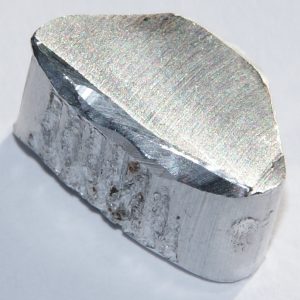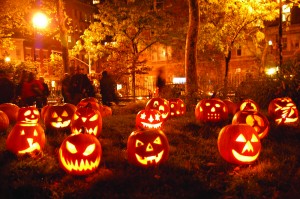Do you know where the word nepotism comes from?
Category Archives: Etymology
A good wallop
If you’ve ever been to the opera at Glyndebourne, deep in England’s green and pretty Sussex countryside, you might have eaten in Middle & Over Wallop or Nether Wallop. If you’re like me, the names of those distinctive dining rooms might conjure up images of saucy spankings, or at least a punch below the belt, perhaps somewhere in England’s green and pleasant lands. But we might be wrong in thinking there was any sort of thrashing going on in the history of these eatery names. Continue reading
In the news: Just deserts – a sweet gaffe?
I guess we all learned something new yesterday, thanks to a certain headline … Continue reading
It’s Friday 13th: a day for paraskevidekatriaphobia, friggatriskaidekaphobia or triskaidekaphobia
Reposting this, on this auspicious day …
It’s Friday 13th, and for some people that’s a day when their triskaidekaphobia kicks in big time. Triskaidekaphobia? It means “fear of the number 13”. Also sometimes spelled triskaidecaphobia, it’s a slightly strange word deriving from two different languages: it combines the Greek treiskaideka (“thirteen”) with the Latin word for “fear of”, phobia. The first known written citation is in a book by Isador Coriat, Religion and Medicine: the Moral Control of Nervous Disorders, published in 1908, so this superstition linked to the number 13 is probably quite a recent phenomenon. But is there also a word for the fear of the date itself? Continue reading
You say aluminum, I say aluminium
There might be trade war brewing over steel and aluminum. But another trans-Atlantic war has already been raging for a couple of centuries over one of those heavy metals. Which came first: American aluminum or British aluminium? Continue reading
A glossary of colors
“Dream when you’re feeling blue”, sang Ray Charles. Shakespeare’s Cleopatra talked famously of her salad days when she was “green in judgement”; the Everley Brothers sang of all their friends being “just about green with envy”. Depeche Mode wrote a whole song about a black day, and Cyndi Lauper saw someone’s “true colors shining through”. The poetic use of color in a metaphorical rather than a literal sense — to describe everything from moods to bank-balances, political affiliations to social classes — dates back centuries and permeates most modern languages. Colors themselves have metaphorical meanings that are universal across cultures and languages. Here’s a summary of their figurative meanings, which are often evoked as keenly and understood as universally as the hues they describe literally. Continue reading
“Bombogenesis”, “bomb cyclone”: new words for a new reality
It’s not just any old Nor’easter heading towards America’s east coast today. It’s a “bomb cyclone,” folks. That’s another name for a word that most of the world has learned in the last 48 hours. Mashable first coined the phrase “bomb cyclone” as a more punchy synonym for the meteorological term bombogenesis. But what the nor’easter is a bombogenesis? Continue reading
Why is it called Boxing Day?
(Reposted by popular demand from previous years.)
What exactly do Brits get up to on Boxing Day — the day after Christmas? Apart from sheer regret, what is the sentiment of this day post repast? Continue reading
A selfie precursor blossoming at the fair …
I’m reading Erik Larson’s fascinating book Devil in the White City, which is about the 1893 World’s Fair in Chicago. A lot of things came out of that fair or were inspired by it, including the ubiquitous ‘Snake Charmer Song’, the Ferris wheel, a notorious serial killer (sic), and several other brand names that have effectively become generic through their popularity — such as Juicy Fruit, Shredded Wheat, and Crackerjack — among other inventions and ideas. And then there was a word that had already been born a century earlier, but which had recently changed its meaning and then began to blossom in the very photogenic landscapes, buildings and attractions of the Columbian Exposition … Continue reading
The origins of Hallowe’en
The word Halloween (or Hallowe’en) dates back to about 1745, and although it describes a pagan holiday, its name has a Christian origin. It means “hallowed” or “holy” evening and derives from a Scottish term for All Hallows’ Eve, the evening before All Hallows’ Day: the Eve of All Saints, which fell on the last night of October. This, the last night of the year in the old Celtic calendar (dating back to the 1550s), was Old Year’s Night, a night for witches. The Scottish word for “eve” is even, and hence the contraction e’en or een. “All Hallows'” is found in Old English (ealra hālgena mæssedæg, referring to the mass day of all saints), but “All Hallows’ Eve” wasn’t recorded until 1556.
The Roman Catholic Church’s official name for All Saints Day (otherwise known as All Hallows’ Day) on November 1 is Solemnity of All Saints’ Day, but it is also called “Hallows” or “Hallowmas” (Hallowmas being shortened from Hallow’s mass). Happy Hallowmas Eve …
***
Halloween
by Robert Burns Continue reading











